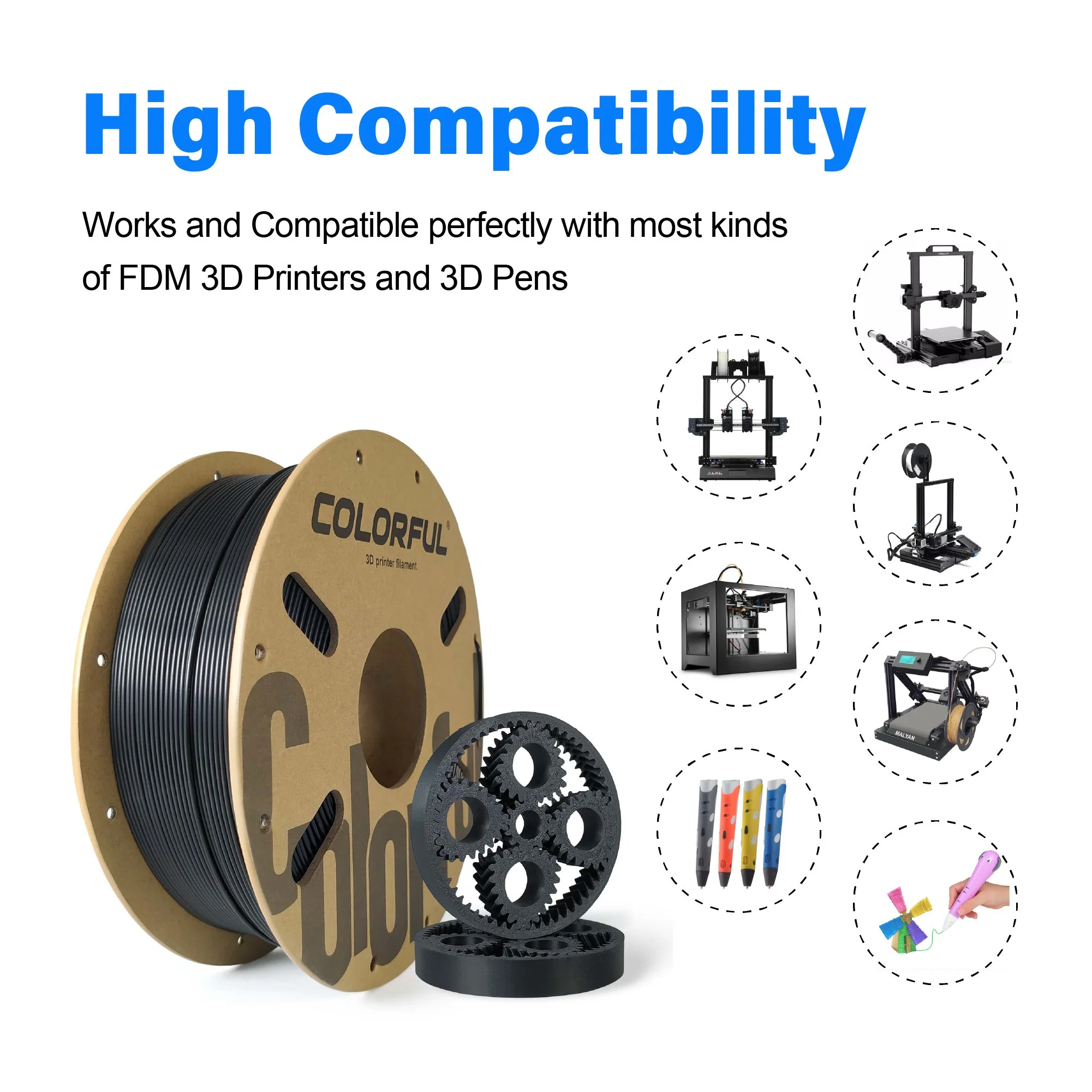ASA
What it’s about: ASA (Acrylonitrile Styrene Acrylate) is a weather-resistant filament designed for outdoor and engineering applications, offering excellent UV stability and impact resistance.
What it’s made of: ASA is a thermoplastic with superior mechanical properties and resistance to UV light, heat, and chemicals, making it a long-lasting material for outdoor use.
How it’s made: ASA is extruded with precise controls to ensure dimensional stability, low warping, and excellent layer adhesion.
Ways to enjoy it: Use ASA for printing outdoor fixtures, automotive parts, and durable prototypes that need to withstand tough environmental conditions without fading or cracking.
What it’s about: ASA (Acrylonitrile Styrene Acrylate) is a weather-resistant filament designed for outdoor and engineering applications, offering excellent UV stability and impact resistance.
What it’s made of: ASA is a thermoplastic with superior mechanical properties and resistance to UV light, heat, and chemicals, making it a long-lasting material for outdoor use.
How it’s made: ASA is extruded with precise controls to ensure dimensional stability, low warping, and excellent layer adhesion.
Ways to enjoy it: Use ASA for printing outdoor fixtures, automotive parts, and durable prototypes that need to withstand tough environmental conditions without fading or cracking.
What it’s about: ASA (Acrylonitrile Styrene Acrylate) is a weather-resistant filament designed for outdoor and engineering applications, offering excellent UV stability and impact resistance.
What it’s made of: ASA is a thermoplastic with superior mechanical properties and resistance to UV light, heat, and chemicals, making it a long-lasting material for outdoor use.
How it’s made: ASA is extruded with precise controls to ensure dimensional stability, low warping, and excellent layer adhesion.
Ways to enjoy it: Use ASA for printing outdoor fixtures, automotive parts, and durable prototypes that need to withstand tough environmental conditions without fading or cracking.
Tips for ASA printing:
*Print Bed Temperature:* At least *100°C or higher*.
Ensure the print bed is fully preheated to slow down the cooling rate of the base material, reducing warping.
*Recommended Nozzle Temperature:* *240-260°C*.
Too low a temperature may result in insufficient adhesion, while too high a temperature could cause overheating or stringing.
*First Layer Settings*
- *Reduce the First Layer Speed:* Set it to 30-50% of the normal printing speed (e.g., 15-20mm/s) to ensure sufficient adhesion time for the first layer.
- *Increase the First Layer Thickness:* Set the first layer thickness to *0.2-0.3mm* to enhance adhesion to the print bed.
*Use Adhesive*
- Apply 3D printing-specific adhesive or regular glue sticks (e.g., Pritt) on the print bed surface.
*Special Print Bed Surfaces*
- *PEI Sheet:* ASA adheres very well to PEI surfaces.
- *Kapton Tape:* Applying a layer of Kapton tape (polyimide tape) on the print bed can effectively prevent warping.
*Enclosed Printing Environment*
- Use an enclosed printer whenever possible to prevent uneven cooling caused by external airflow.
- For open-frame printers, consider adding a DIY heat shield (e.g., acrylic panels or fabric covers).
*Avoid Airflow*
- Turn off the cooling fan, especially for the first few layers.
- ASA requires slow cooling, and rapid cooling can lead to warping or cracking.
*Ambient Temperature*
- Maintain a room temperature of *25°C or higher*, and avoid drafts or temperature fluctuations in the printing area.

